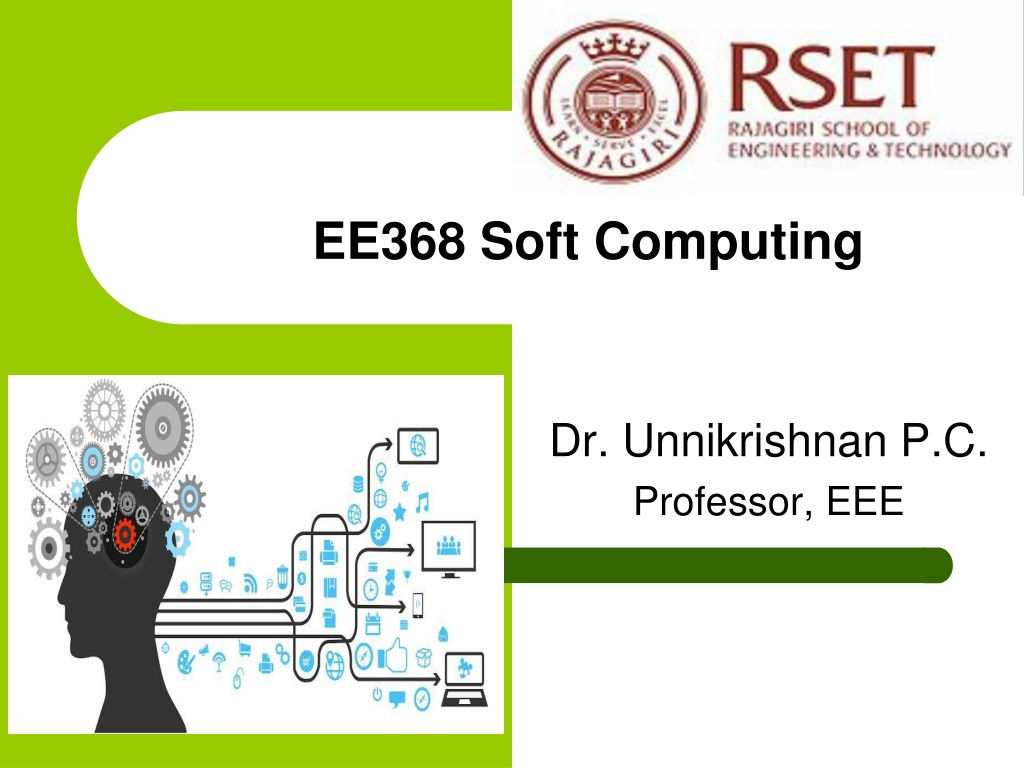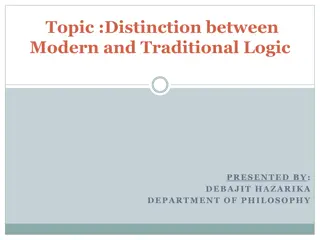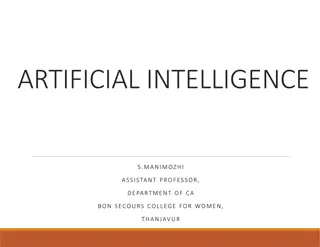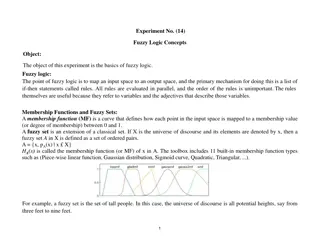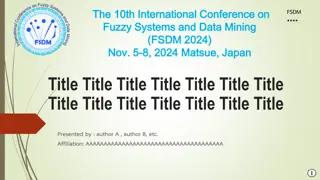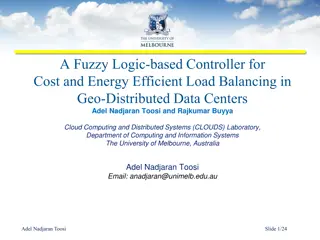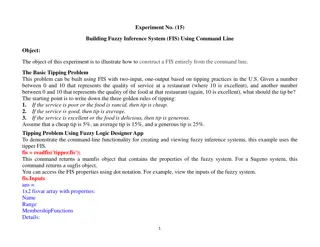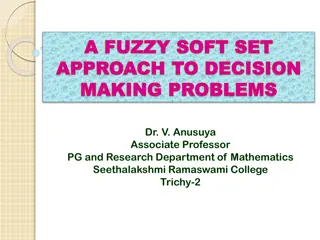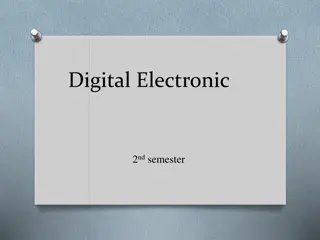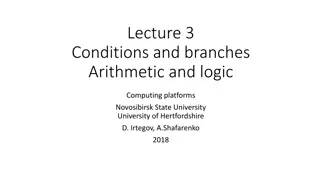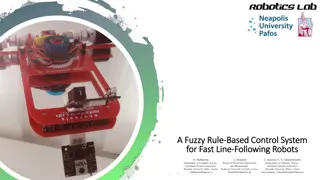Applications of Fuzzy Logic in Soft Computing
Fuzzy logic is primarily used as the underlying logic system for decision support systems in various applications. From fuzzy controllers to fuzzy rule bases, this technology enables approximate reasoning similar to human decision-making processes. Explore the architecture and major components of Fuzzy Logic Control (FLC) and the steps involved in designing an FLC system. Discover the practical applications and significance of fuzzy logic in the field of soft computing.
Download Presentation

Please find below an Image/Link to download the presentation.
The content on the website is provided AS IS for your information and personal use only. It may not be sold, licensed, or shared on other websites without obtaining consent from the author.If you encounter any issues during the download, it is possible that the publisher has removed the file from their server.
You are allowed to download the files provided on this website for personal or commercial use, subject to the condition that they are used lawfully. All files are the property of their respective owners.
The content on the website is provided AS IS for your information and personal use only. It may not be sold, licensed, or shared on other websites without obtaining consent from the author.
E N D
Presentation Transcript
EE368 Soft Computing Dr. Unnikrishnan P.C. Professor, EEE
Module II Fuzzy Applications-Fuzzy Logic Controllers
APPLICATIONS OF FUZZY LOGIC . Fuzzy logic is used directly in very few applications. Most applications of fuzzy logic use it as the underlying logic system for decision support systems.
Major Components of FLC Fuzzifier The role of fuzzifier is to convert the crisp input values into fuzzy values. Fuzzy Knowledge Base It stores the knowledge about all the input-output fuzzy relationships. It also has the membership function which defines the input variables to the fuzzy rule base and the output variables to the plant under control. Fuzzy Rule Base It stores the knowledge about the operation of the process of domain. Inference Engine It acts as a kernel of any FLC. Basically it simulates human decisions by performing approximate reasoning. De-fuzzifier The role of de-fuzzifier is to convert the fuzzy values into crisp values getting from fuzzy inference engine. Note: The kernel of a fuzzy set is the crisp subset of the universe where the membership degrees are equal to 1
Steps in Designing FLC Identification of variables Here, the input, output and state variables must be identified of the plant which is under consideration. Fuzzy subset configuration The universe of information is divided into number of fuzzy subsets and each subset is assigned a linguistic label. Always make sure that these fuzzy subsets include all the elements of universe. Obtaining membership function Obtain the membership function for each fuzzy subset that we get in the above step. Fuzzy rule base configuration Formulate the fuzzy rule base by assigning relationship between fuzzy input and output. Fuzzification The fuzzification process is initiated in this step. Combining fuzzy outputs By applying fuzzy approximate reasoning, locate the fuzzy output and merge them. Defuzzification Finally, initiate defuzzification process to form a crisp output.
Example: Driving speed Decision of a car How fast am I going to drive today? Linguistic variables: o Temp: {freezing, cool, warm, hot} o Cloud Cover: {overcast, partly cloudy, sunny} o Speed: {slow, fast}
FUZZIFICATION Calculate Input Membership Levels
DEFUZZIFICATION Constructing The Output
Advantages of Fuzzy Logic Control Cheaper Developing a FLC is comparatively cheaper than developing model based or other controller in terms of performance. Robust FLCs are more robust than PID controllers because of their capability to cover a huge range of operating conditions. Customizable FLCs are customizable. Emulate human deductive thinking Basically FLC is designed to emulate human deductive thinking, the process people use to infer conclusion from what they know. Reliability FLC is more reliable than conventional control system. Efficiency Fuzzy logic provides more efficiency when applied in control system.
Disadvantages of Fuzzy Logic Control Requires lots of data FLC needs lots of data to be applied. Useful in case of moderate historical data FLC is not useful for programs much smaller or larger than historical data. Needs high human expertise This is one drawback as the accuracy of the system depends on the knowledge and expertise of human beings. Needs regular updating of rules The rules must be updated with time.
